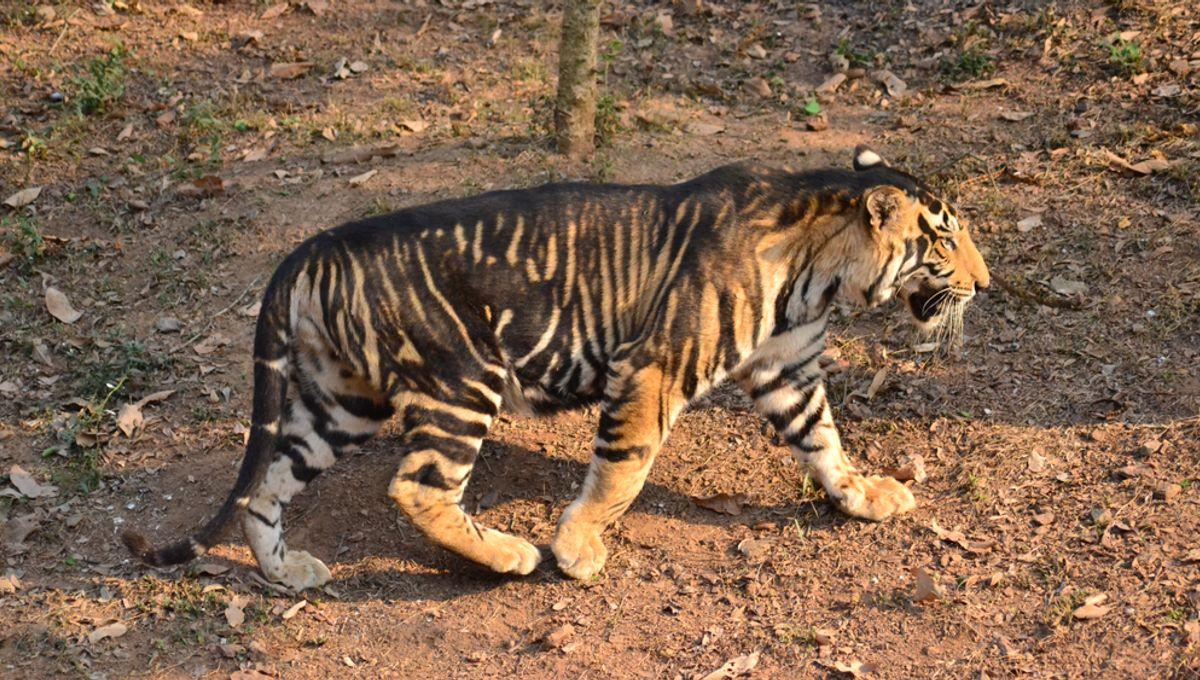-
Nieuws Feed
- EXPLORE
-
Pagina
-
Blogs
-
Forums
World’s Only Population Of Black Tigers Lives In A Single Reserve In India

World’s Only Population Of Black Tigers Lives In A Single Reserve In India
India is home to roughly three-quarters of the world's tigers. After a few precarious years due to hunting, conflict, and habitat loss, its population doubled between 2006 and 2018 thanks to conservation efforts, even increasing its range by 30 percent. However, some of the smaller populations are facing a common problem, one that tends to show up a lot more clearly on what should be their famously orange coats.
The rest of this article is behind a paywall. Please sign in or subscribe to access the full content. Black (or pseudomelanistic) tigers have been reported in the Similipal Tiger Reserve (STR) since the middle of the 1970s, and the area is believed to be the only habitat for these specific tigers in the world. They are not a separate species, but rather Bengal tigers (Panthera tigris tigris) with a genetic mutation. As documented by National Geographic, this more recent proliferation appears to be due to a 10-year-old male tiger known as T12. In 2014, just four tigers were left in the Similipal Tiger Reserve. T12 was born with a relatively rare genetic condition known as melanism, which sees an increase in dark pigmentation in hair, skin, and fur. While rare, it's found in a wide variety of animals. While heroically helping repopulate the tiger reserve, T12 passed this condition on to his offspring. Now, close to half of the reserves' population has this black coat, raising concerns about inbreeding. The darker coloring is caused by a genetic mutation called melanism. Image credit: Rishav Chandra/Shutterstock.com Last year, a controversial new safari specifically for the melanistic tigers was announced by the Chief Minister of the Odisha Government, Naveen Patnaik. This is just 15 kilometers (9.3 miles) away from the STR. The new area is approximately 200 hectares and is adjacent to National Highway 18. However, news on that front has gone quiet, perhaps due to the concerns raised by conservationists that this inbreeding might be encouraged for tourism. ⓘ IFLScience is not responsible for content shared from external sites. According to Scientific American, one in three tigers in the STR is black. Technically, the tigers of the STP are what is known as pseudomelanistic, with a variation in their coat that causes their stripes to be unusually large or even merged. A 2021 paper traced the mutation to a single gene called Transmembrane Aminopeptidase Q or taqpep that was present in 10 out of 12 of the tigers tested in the study. None of the 395 tigers that lived outside the STR had a single copy of the gene mutation, suggesting that this population did not breed with tigers outside of their range. This is what is known as an autosomal recessive trait. ⓘ IFLScience is not responsible for content shared from external sites. According to the paper, this could suggest not a chance to see an ultra-rare black tiger but an indicator of a bigger problem: inbreeding due to low population diversity likely caused in this species by habitat fragmentation by humans. Similipal is one of India's largest reserves. The nearest neighboring one is 160 kilometers (100 miles) away, not far for a tiger to stroll – if there were any tigers left in Satkosia. Now, the goal for tiger conservation is not just to ensure numbers but to try and introduce some genetic diversity to these small, isolated populations. Melanism is not the only genetic mutation that affects the colour of animals. The opposite effect is albinism and similarly leucism, which makes animals appear paler or just partly white. Xanthochromism causes an excess of yellow-orange tones and is much rarer. 


